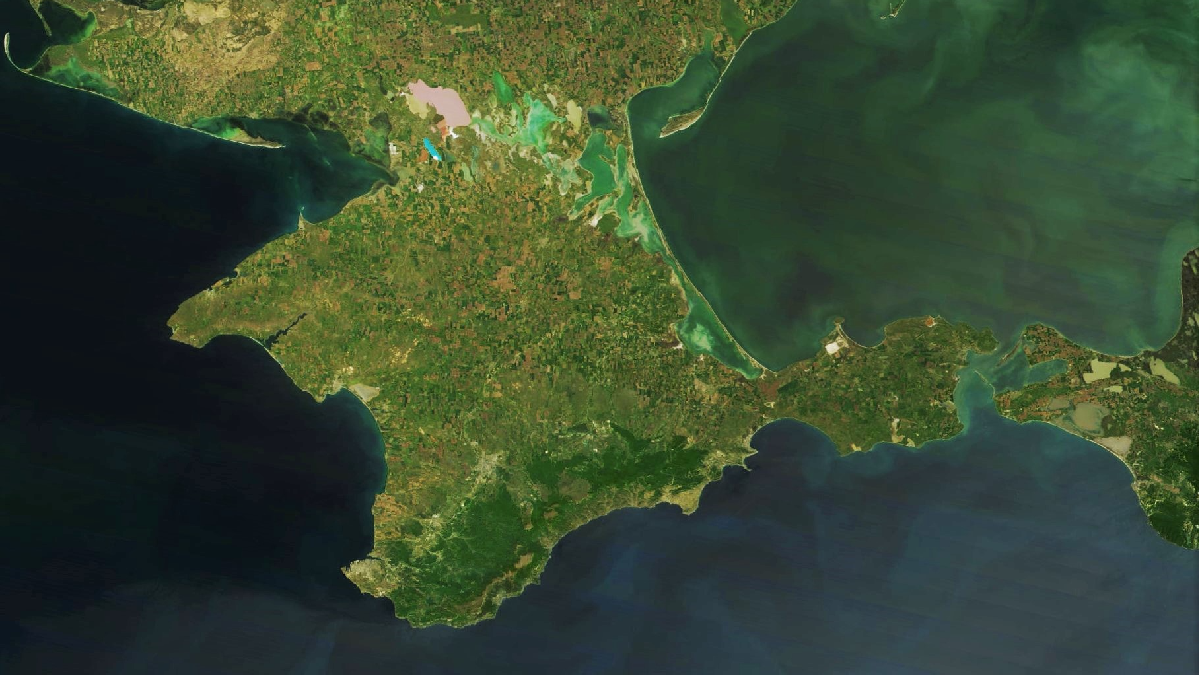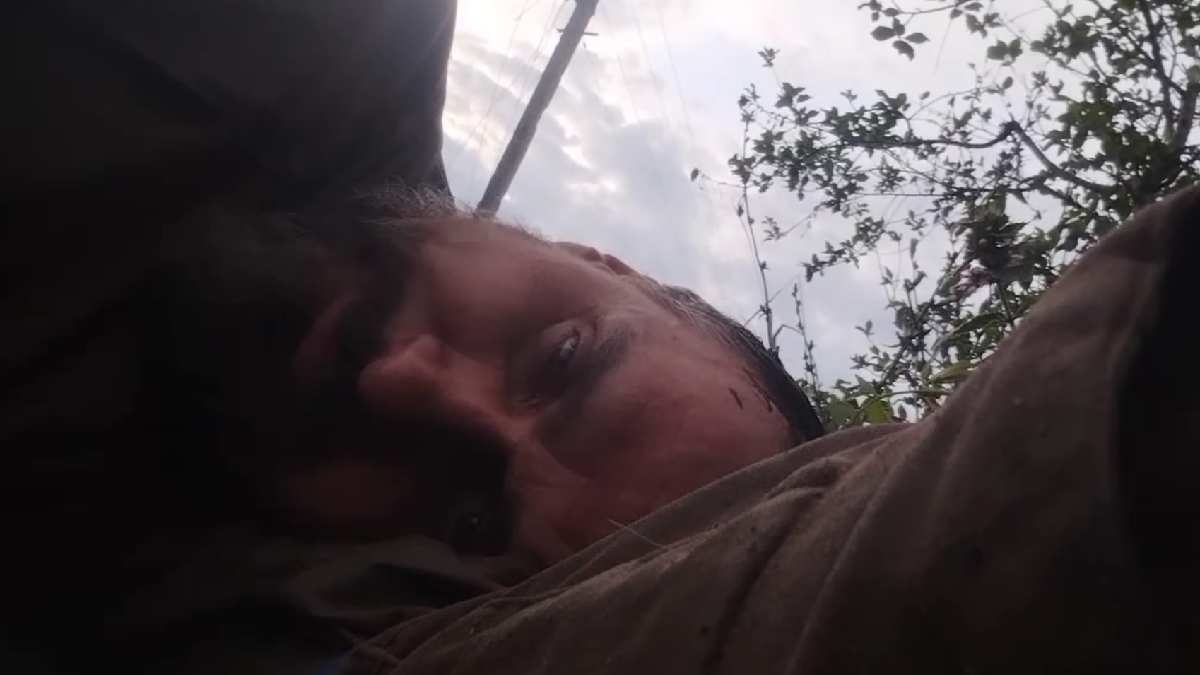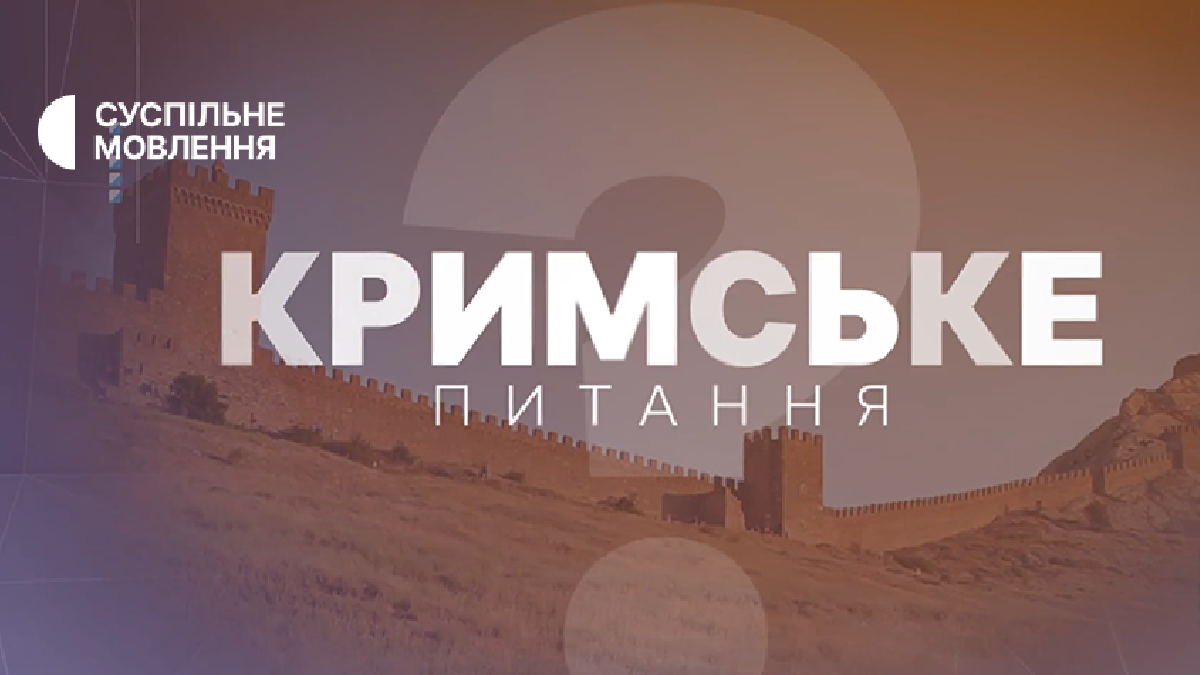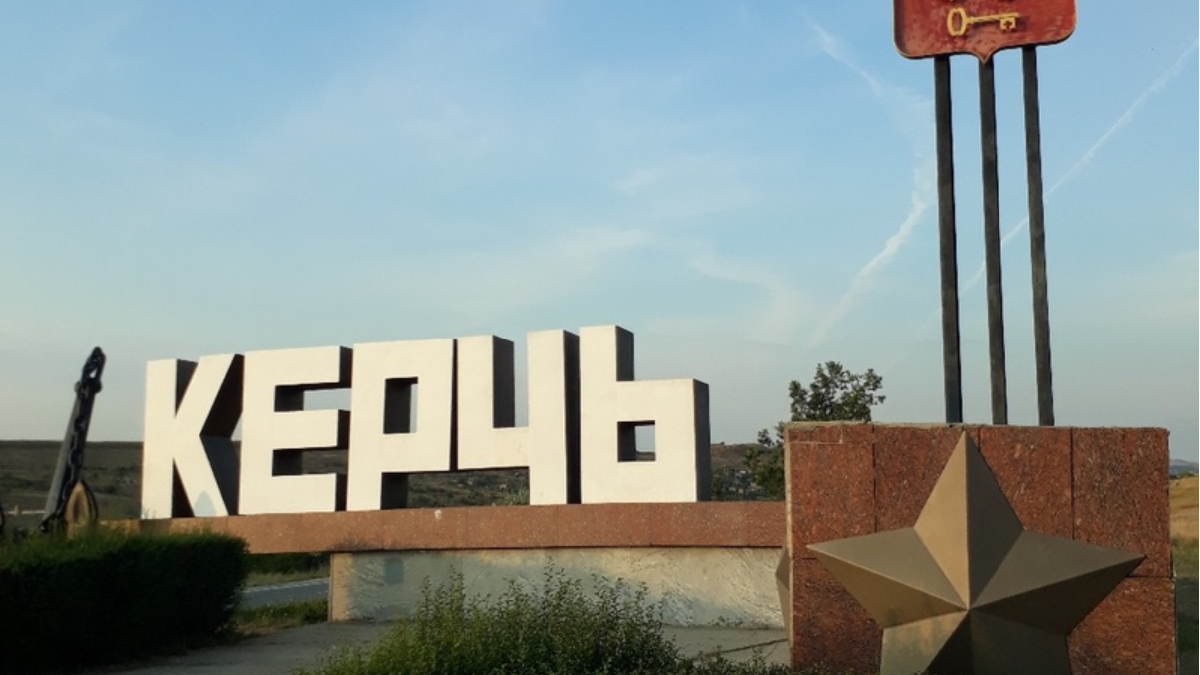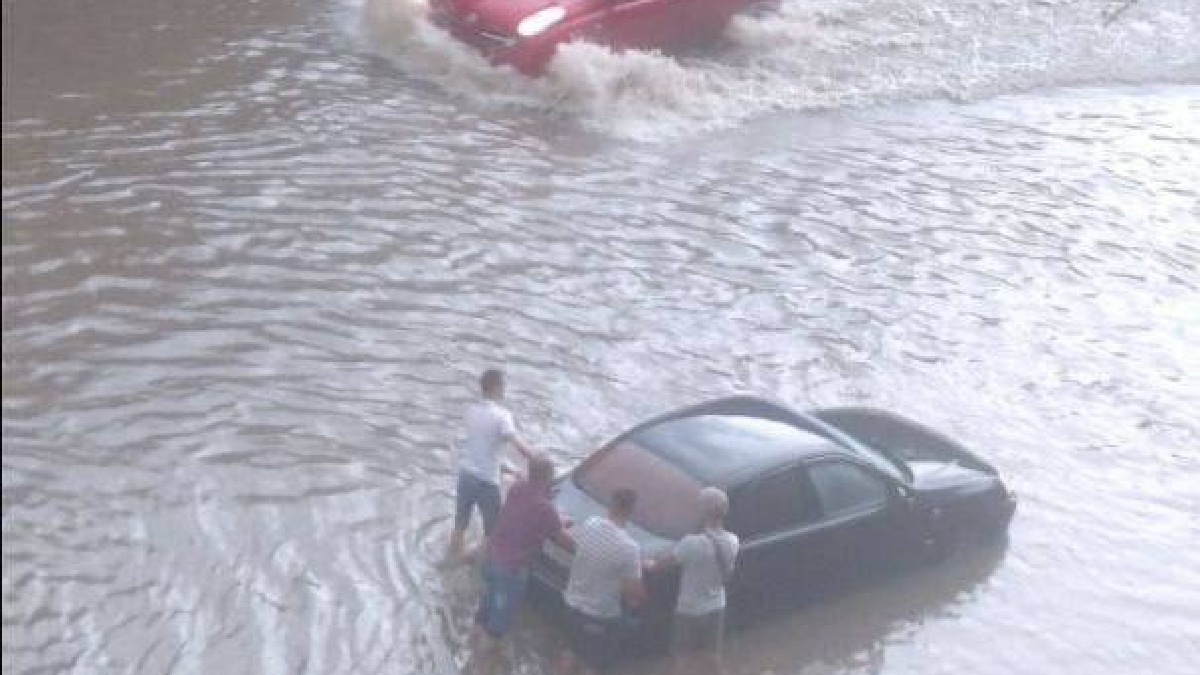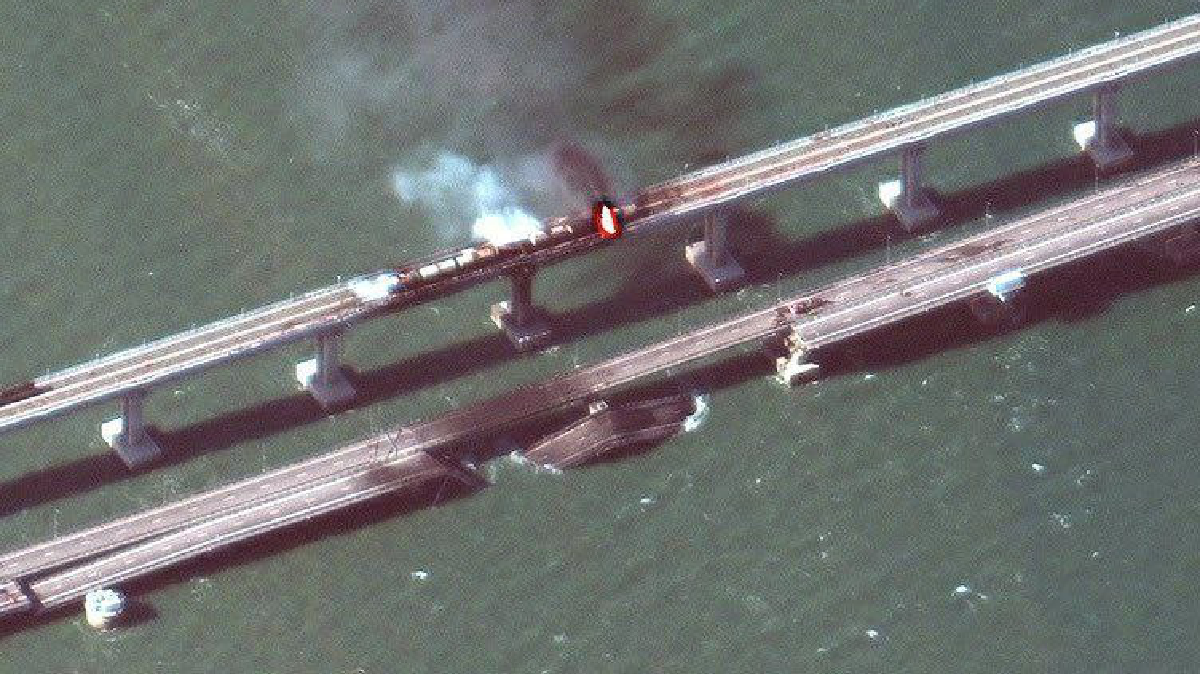Closure of the Chaplynka checkpoint. For or Against
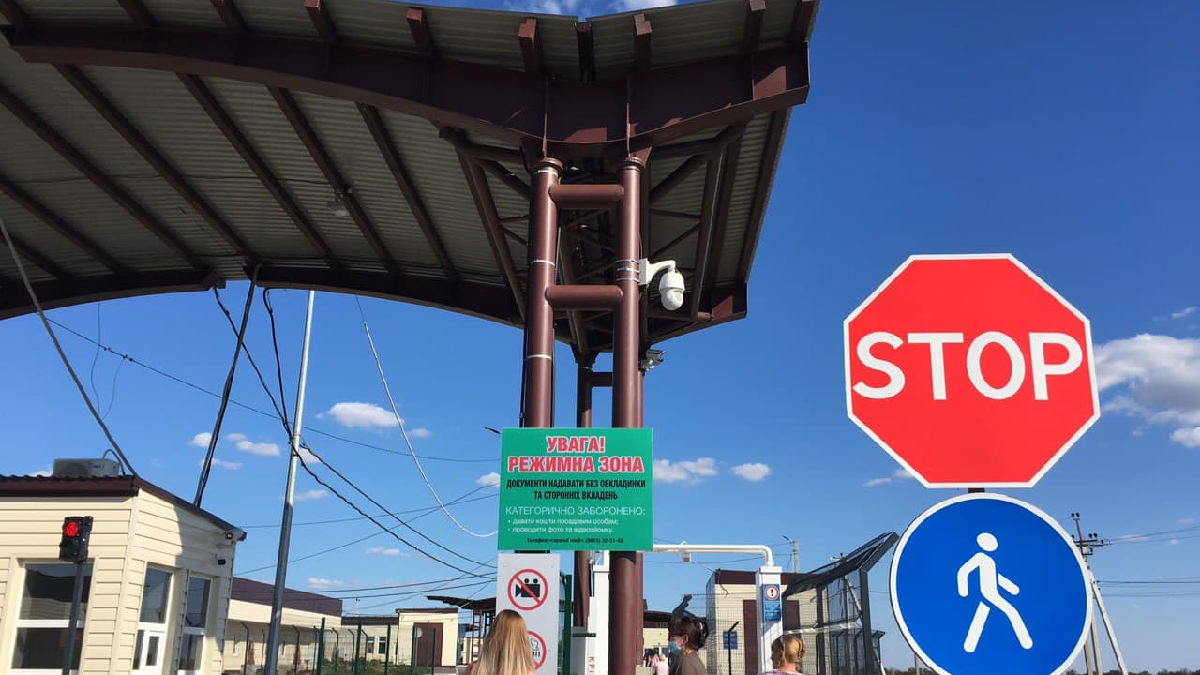
Ukraine is finally closing the Chaplynka checkpoint on the administrative border between Crimea and Kherson region. This order was issued by the first deputy head of the Kherson Regional State Administration Andriy Shibayev. The decision to close will take effect on October 19. Currently, the Chaplynka checkpoint is out of order - repairs have been underway since June 7.
What are the reasons for closing the Chaplynka checkpoint, which will change for people crossing the administrative border - all this was discussed in the "Topic of the day" with Mykola Yakymenko - Deputy Head of the Kherson Regional State Administration, Olga Kuryshko - Crimean Legal Coordinator and Boris Babin - Doctor of Law, professor, ex-representative of the President of Ukraine in the Autonomous Republic of Crimea
Mykola Yakymenko, Deputy Head of the Kherson Regional State Administration, noted that the Chaplynka checkpoint is not in demand among travelers, and the Kalanchak checkpoint is nearby, which is fully equipped and ready to receive many more people than the current one.
In addition, he added that Chaplinka border checkpoints are not in very good condition, and that to make good conditions for people there needs a lot of additional funding. As for the works related to the modernization of the control systems for crossing the administrative border, in connection with which, according to the Regional State Administration, the border checkpoints was closed from September 16 to October 18, they are not finished yet. The Kherson Regional State Administration did not receive any complaints or appeals after the decision to close the border checkpoints:
“We have a hotline. We are in constant dialogue with people who are in the temporarily occupied territory and through social networks. There were no complaints or wishes. Other checkpoints are loaded by 10% ”
The representative of the regional state administration also told about the transfer of border checkpoints to the balance of the state enterprise subordinated to the Ministry of Reintegration of the temporarily occupied territories of Ukraine. It should deal, among other things, with the establishment of passenger traffic with CPVV. The Kherson regional state administration for its part, Nikolay Yakimenko added, supports and helps in registration of documents. He also spoke about how the transition of the Khesron region to the "red" quarantine zone will affect the work of the border checkpoints:
“The epidemiological situation is difficult, but it does not affect the work of the border checkpoints. They will work. There is rapid testing for people crossing the border. Kalanchak and Chongar will have more testing time at border checkpoints will work in a regular mode”.
According to Mykola Yakymenko, after the closure of the Chaplynka checkpoint, all the infrastructure will remain there, and only border guards will work. We asked Ivan Shevtsov, the head of the press service of the Kherson Border Detachment, how their work would be affected by the closure of the border checkpoints.
He confirmed that the passenger flow through the Kalanchak checkpoint was small. On average, 5-6 people and 1-2 vehicles passed through the day. At other checkpoints, passenger traffic is about a thousand people a day.
Olga Kuryshko, the coordinator of the legal direction of CrimeaSOS, considers the decision to close the Chaplynka checkpoint premature. She believes that the arguments broadcast by the state border service, local authorities and the relevant ministry are not well-founded at present:
“It is impossible to compare passenger traffic over the last two years due to the quarantine restrictions imposed on the crossing by both Ukraine for a long time and the Russian Federation. Currently, there are restrictions on crossing for those who are not relatives or do not have good reasons to travel, from Russia. Therefore it is impossible to tell that it is necessary to close Chaplinka because of passenger traffic. For example, in 2019, entry and exit - 40 thousand people through Chaplynka, in September last year - 1 thousand people, but decreased passenger traffic through other checkpoints. This information is taken from an official source on the website of the State Border Guard Service".
She added that Chaplynka was not in the best condition and was not in the project of allocating budget funds for reconstruction or arrangement.
As it was at the time of opening, so it remains to this day. Olga Kuryshko told more about the transfer of border checkpoints to the balance of the state enterprise and the changes that have occurred over the past year and a half, which are related to this:
"We have been monitoring the situation since the beginning of this year. The situation is not very comforting from our point of view. If according to Chongar there is more positive information about the establishment of testing points, the normal operation of CNAPs, then Kalanchak now remains in not very good condition. Local authorities are trying to ensure that everything is of high quality and on time, but due to the fact that there is no one to maintain and who should provide current repairs, we have information that there is a roof in one of the repair of the room, asphalt. All this has a very negative effect on the infrastructure itself and the impression of people crossing the administrative border. If Chongar already has a balance holder, although we do not see any concrete actions to be taken to purchase transportation services and set up processes, then there are no processes at all in Kalanchak, where the bus station and infrastructure are ready”.
She also called the issue of bus transportation quite problematic. According to her, the Kherson Regional State Administration tried several times to organize a tender for the purchase of transportation, but for various reasons they did not take place. Now the circumstances have changed, there is a direct indication that the car service should be established. Olga Kuryshko also spoke about how it is possible to influence the situation:
"It simply came to our notice then. as for the construction and reconstruction of border checkpoints. This was emphasized for a long time and questions were postponed. There should be an instruction from the ministry and in addition, funds should be allocated for this. Because according to our estimates, such transportation will not be very profitable and will require an additional burden on the local budget. It is likely that this will have to be agreed between the ministry and the local government as to how much the local government should invest in setting up the process and what funding should come from the ministry”.
Borys Babin, Doctor of Law, former representative of the President of Ukraine in the Autonomous Republic of Crimea, supports the decision to close the border checkpoints. According to him, this decision should have been made a few years ago, but due to some public outcry, it was made only now, in a pandemic, "when even people who appealed to the widest possible crossing of the line of demarcation, can not but agree that today border checkpoints is practically not used. " Why the decision was made right now the former permanent representative of the president in the Autonomous Republic of Crimea says the following:
“We now see that there are people who think about Crimea in abstract categories and know very superficially the real facts, in particular in security, military, and, accordingly, general criminal cases. Border checkpoints were not closed solely because of the need for positive public relations, although CPVV had no practical significance and everyone understood this perfectly. The government understood the need to close a long time ago because there was a simple need to set up the border checkpoints”.
Borys Babin added that the border checkpoints were not in very good condition, and it was better to redirect the taxpayers' money that could be spent on its repair to something else.
He also commented on the words of human rights activist Olha Skrypnyk, who in a comment to Suspilne News Channel pointed out that the additional border checkpoints could provide an additional opportunity for civilians to leave in the event of repression or escalation on the occupied peninsula:
“If the aggressor wants to close the line of demarcation, he closes it. The impression is that we can influence which side they can open and what they can't. Let me give you an example: in the occupied east, the occupiers have not opened the Zolote checkpoint for several years. This is their position and we cannot influence it. The same here. There is an alternative - for smugglers, for corruption schemes - yes, this alternative existed in the form of "Chaplinka". It does not exist today. Maybe someone doesn't like it very much”.

